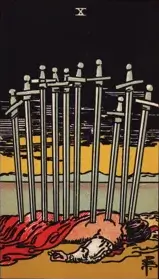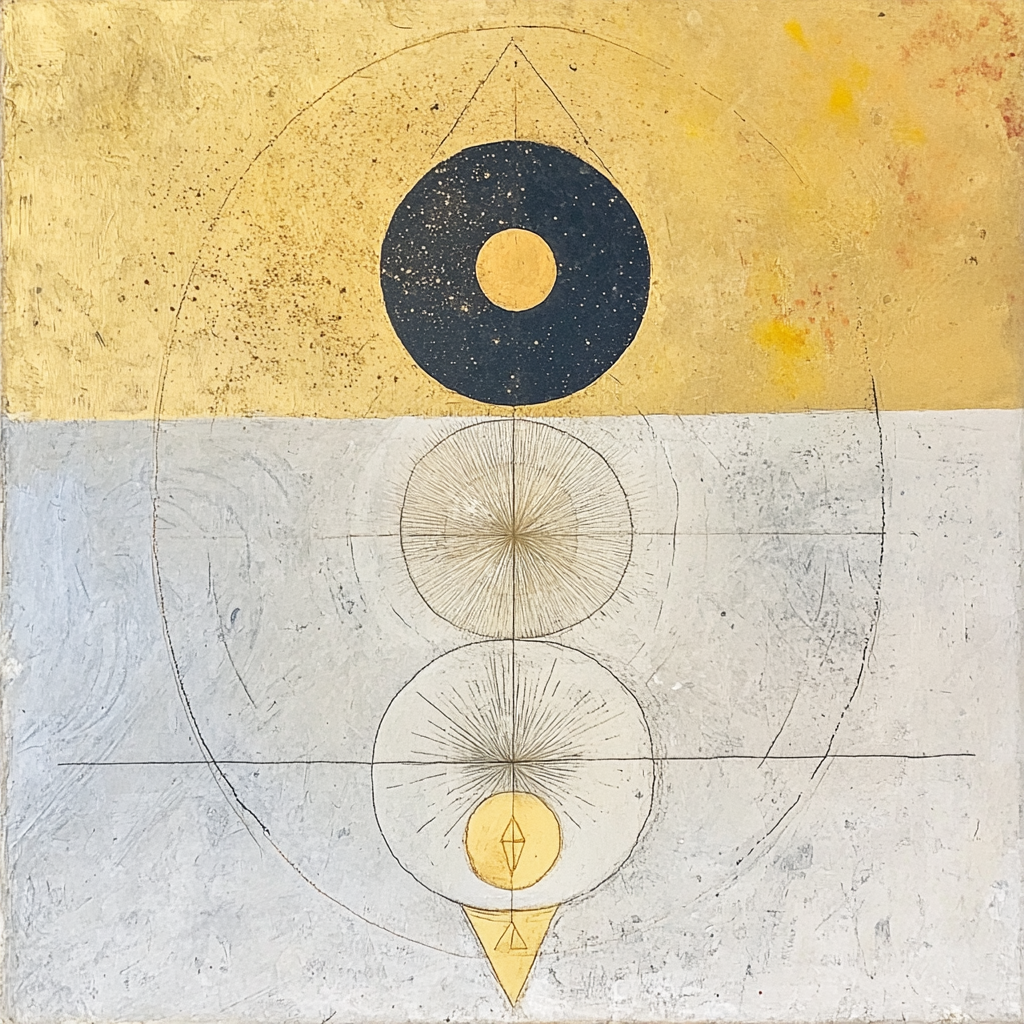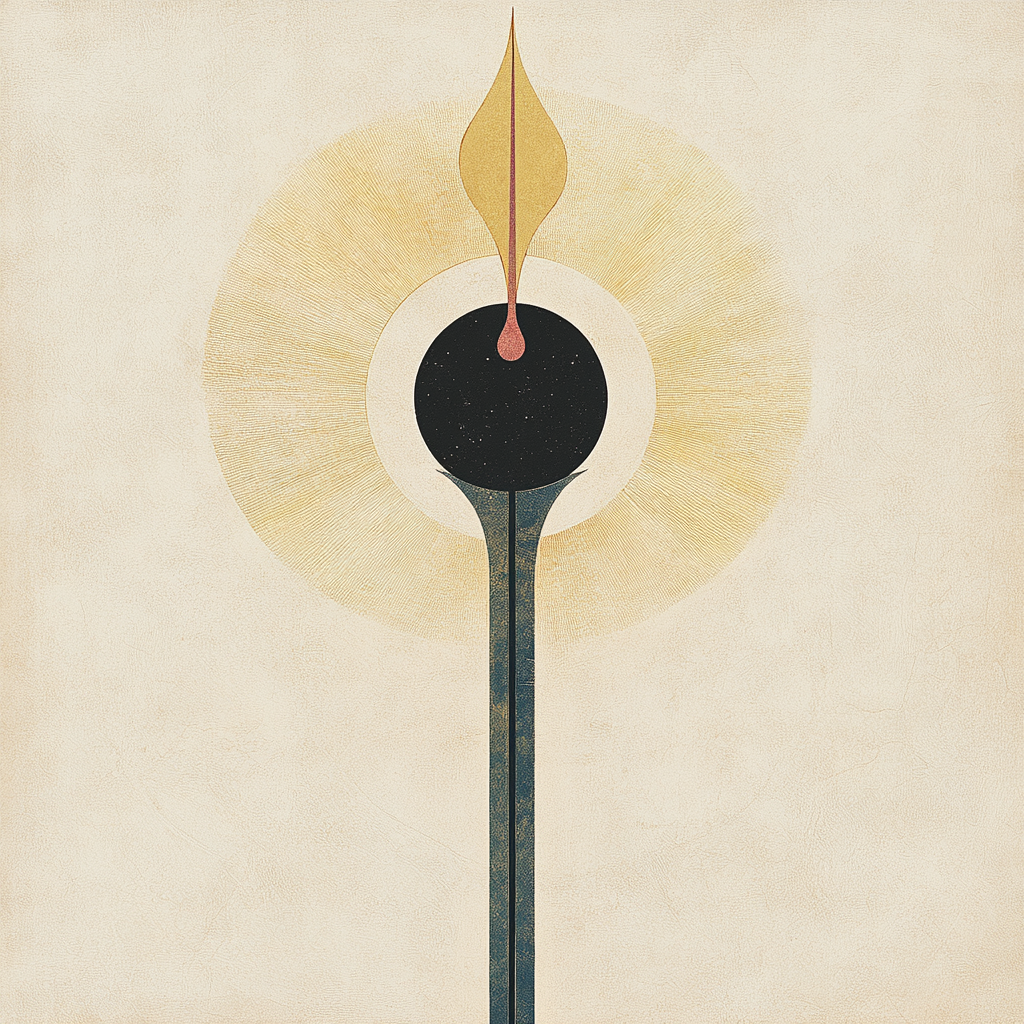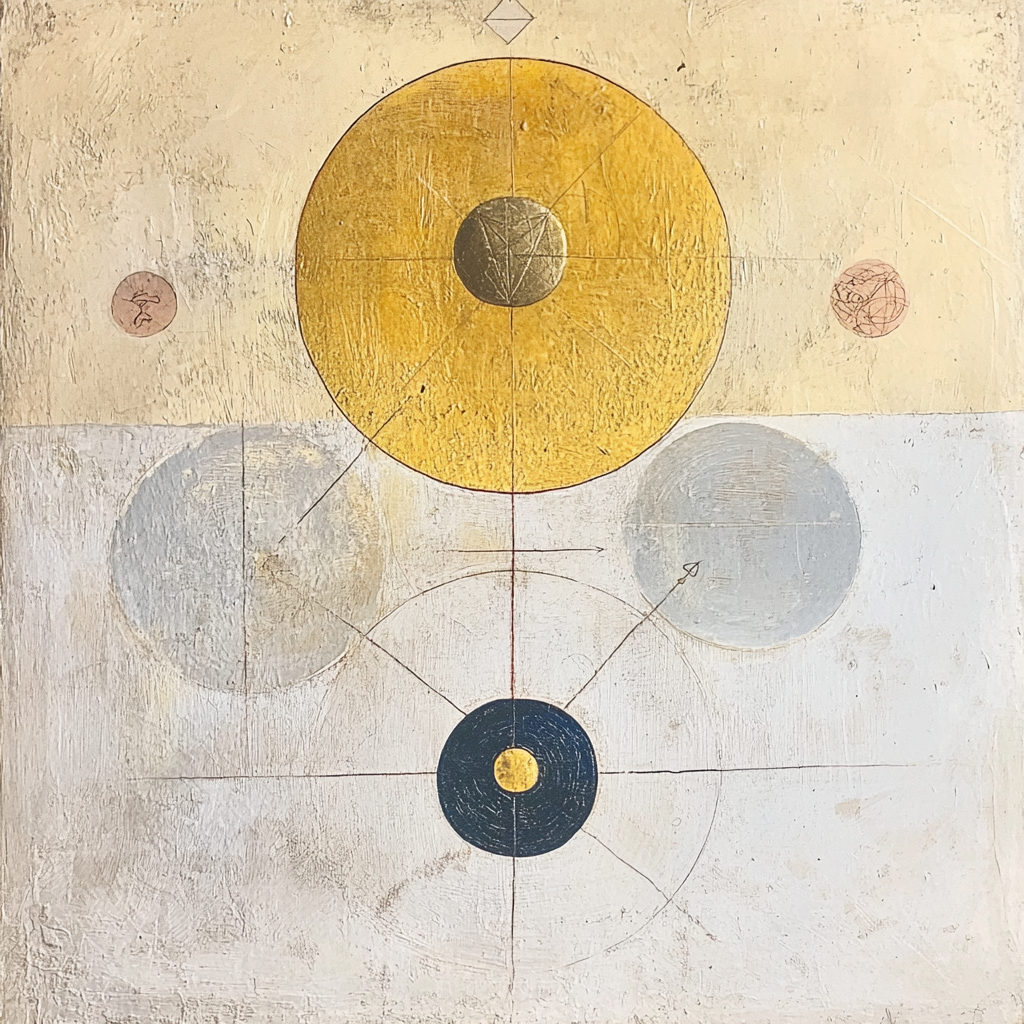Ten of Swords Tarot card meaning in 3 aspects

Ten of Swords Tarot Meaning: Betrayal, Endings, and New Beginnings
The Ten of Swords Tarot meaning: This card is often characterised by themes of betrayal, loss, and painful endings. Yet, it also heralds a powerful opportunity for new beginnings.
Ten of Swords Tarot Meaning: Endigs and New Beginnings
This card serves as a stark reminder of the cycles of life, where endings pave the way for fresh starts. In the Rider-Waite tarot deck, the Ten of Swords is depicted as a figure lying face-down with ten swords piercing their back, under a dark sky. While this imagery might appear grim, it is essential to understand the deeper symbolism and messages this card conveys.
Ten of Swords Tarot Meaning: Emotional and Mental Burdens
The Ten of Swords brings attention to the emotional and mental burdens we carry, often representing the culmination of struggles or a major life shift. When this card appears in a reading, it may signal the end of a difficult situation, urging the querent to accept closure and embrace the transformation that comes afterward.
Ten of Swords Tarot Meaning: Release Negative Patterns
While Ten of Swords signifies distress, it also encourages the release of negative patterns, thoughts, or relationships, allowing space for healing and renewal.
Journal prompts for reflective work on Ten of Swords
- What recent experiences have felt like a “rock bottom” moment for me, and how can I find hope and renewal in them?
- In what ways might I be holding onto betrayal or loss, and how can I begin to release these burdens?
- How can I transform my pain into a source of strength and wisdom?
- What does a new beginning look like for me, and what steps can I take to embrace it?
- How can acknowledging my shadow self lead to personal growth and healing?
Symbolism found in Ten of Swords
The symbolism within the Ten of Swords is rich with meaning.
Symbolism: The Figure Pierced by Swords
The image of the prone figure pierced by swords against a dim sky reflects the weight of betrayal and the notion of hitting “rock bottom.” The swords themselves, traditionally representing intellect and conflict in tarot, indicate the mental anguish and defeat one might feel in the face of overwhelming adversity.
Symbolism: The Dawn in the Horizon
However, the dawn breaking on the horizon signifies hope and the promise of new beginnings. This duality, between despair and hope, suggests that every ending, no matter how painful, is simultaneously a fertile ground for rebirth.
Symbolism: The Shadow Self
In Jungian psychology, this card can be seen as an invitation to engage with our shadow self, confronting those parts of our psyche that harbour pain and fear. By acknowledging these shadows, we can transform our suffering into wisdom. The card underscores the necessity of facing our inner darkness to emerge stronger and more resilient.





